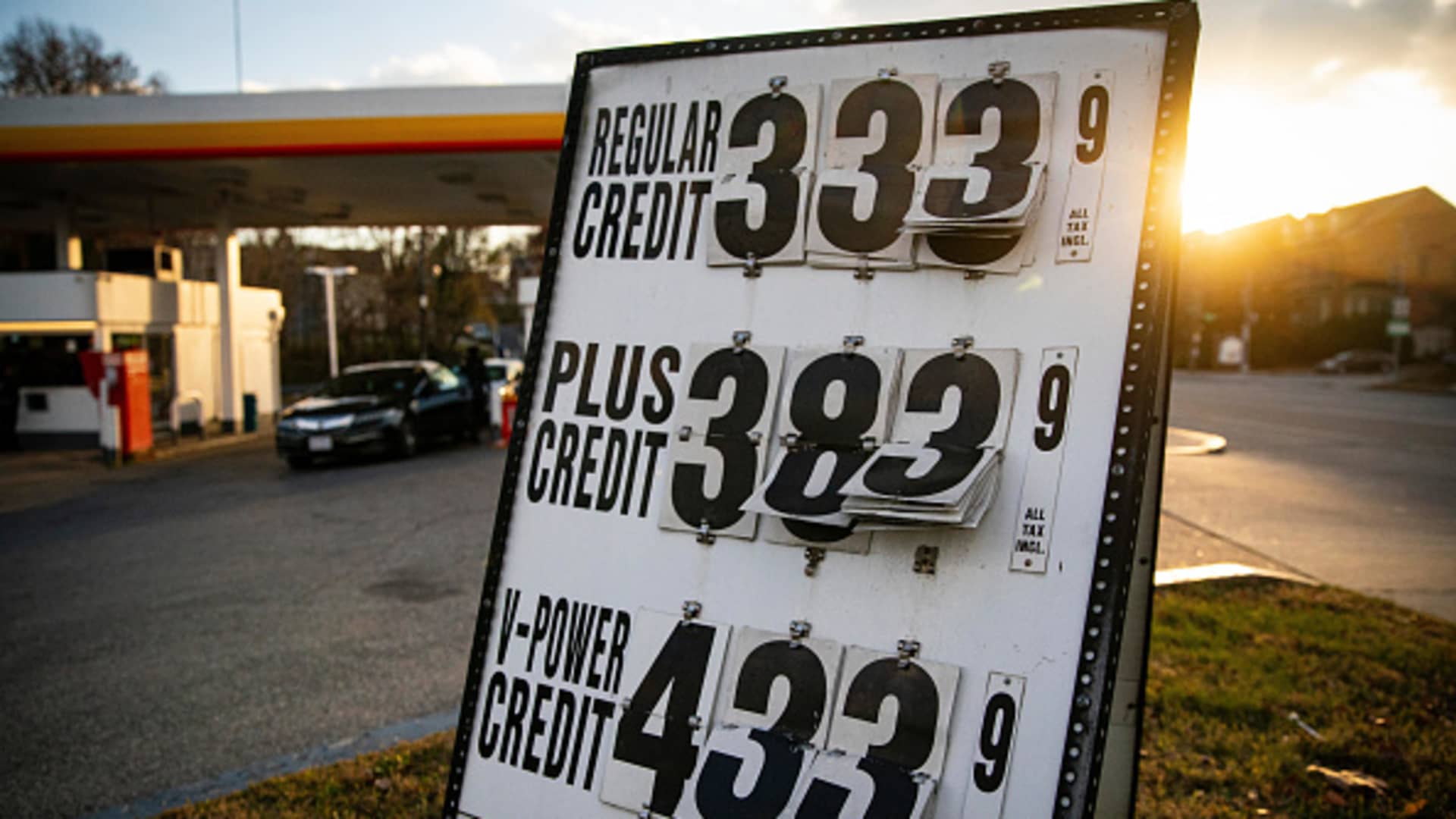U.S. crude declined nearly 4% on Wednesday with retail gasoline prices hitting the lowest point since January ahead of the holiday shopping and travel season.
The West Texas Intermediate contract for January fell $2.80, or 3.87%, to $69.52 a barrel, while the Brent contract for February declined $2.68, or 3.47%, to $74.52 a barrel.
U.S. crude and the global benchmark have hit their lowest levels since June, despite efforts by OPEC+ to boost prices by promising to slash supply in the first quarter of 2024.
Prices at the pump in the U.S., meanwhile, have followed oil prices lower to hit $3.22 a gallon on average as of Wednesday, the lowest price since Jan. 3, according to AAA.
Oil prices have been on a steep downward trajectory from September highs as nations outside OPEC+, particularly the U.S., pump crude at breakneck clip and worries grow about the Chinese economy.
Moody’s on Tuesday downgraded its outlook for China’s government credit raging to negative from stable.
U.S. crude inventories fell by 4.6 million barrels for the week ending Dec. 1 and gasoline supplied to the market increased by 260,000 barrels per day, according to the Energy Information Agency.
Falling inventories and rising gasoline deliveries implies higher demand, which would typically boost oil prices. Pessimism about the economic outlook in China, however, appeared to be weighing heavier on crude prices.
Oil traders have also been skeptical OPEC+, which includes OPEC members and its allies like Russia, will deliver on supply cuts of 2.2 million bpd in the first quarter next year.
Several OPEC+ members announced the voluntary cuts last week after the group failed to reach a unanimous agreement on production targets.
Saudi Energy Minister Price Abdulaziz bin Salman and Russian Deputy Prime Minister Alexander Novak sough to assure the market this week that they could extend or even deepen the promised cuts.
Tamas Varga, an analyst with PVM Oil Associates, said those reassurances have “fallen to deaf ears.”
